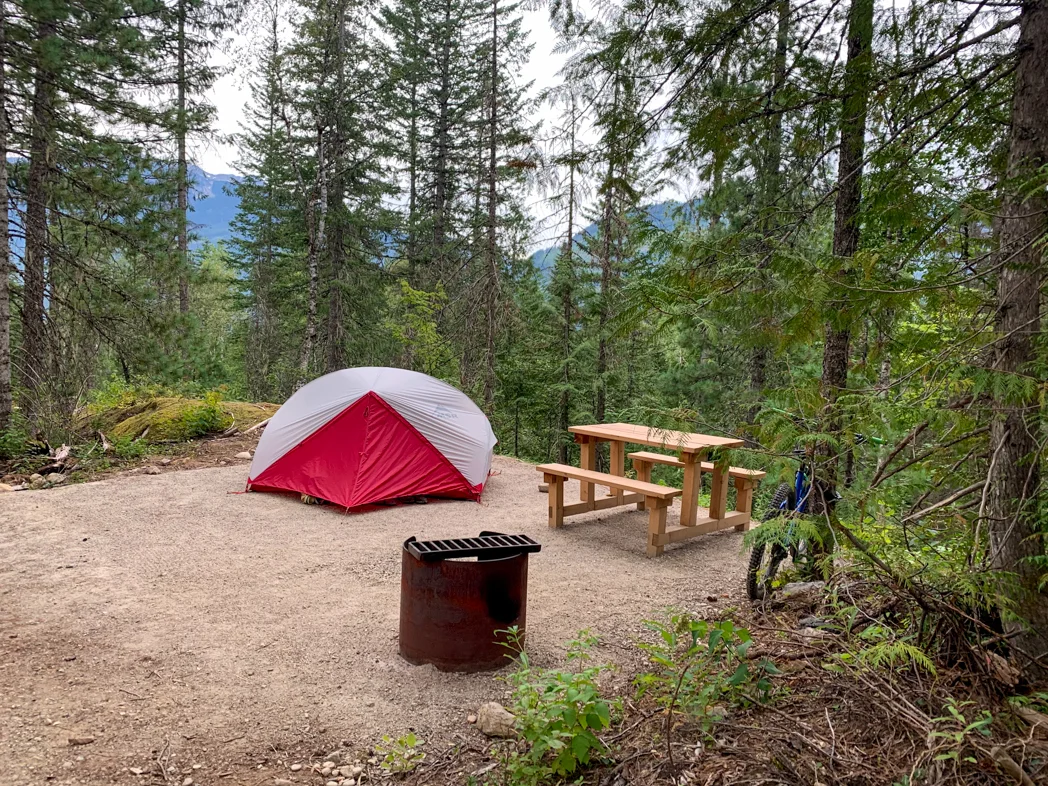Despite being a meticulous planner, sometimes I don’t end up making camping reservations as early as I should. And that means the dates I want are often sold out. Recently I’ve been testing out some camping cancellation apps, and have been pleasantly surprised with the results.
If you haven’t heard, these camping reservation notifiers send you a text or an email when a campground you want to stay at gets a cancellation. Then you can go online and book it.
Read on for my full run-down on camping cancellation apps. It includes a head-to-head comparison of two popular Canadian options, Campnab and Schnerp.
Hey there: Both Campnab and Schnerp gifted me subscriptions to their service. But all opinions in this post are completely my own. Some of the links in this post are affiliate links, which means I earn a small commission at no cost to you. Thanks for your support. -Taryn
Why Use a Camping Cancellation App?
Camping is more popular than ever. While you used to be able to roll up to a campground on a Saturday afternoon and get a campsite, that is no longer the norm. Instead, you need to make a camping reservation online months in advance and everything gets fully booked up.
And that can suck for a couple of reasons: You may not know your schedule ahead of time. Or you might not get the campsite reservation you want even if you did try to book right when they opened.
The solution is a campsite availability checker. Read on to find out how they work and which one I recommend.
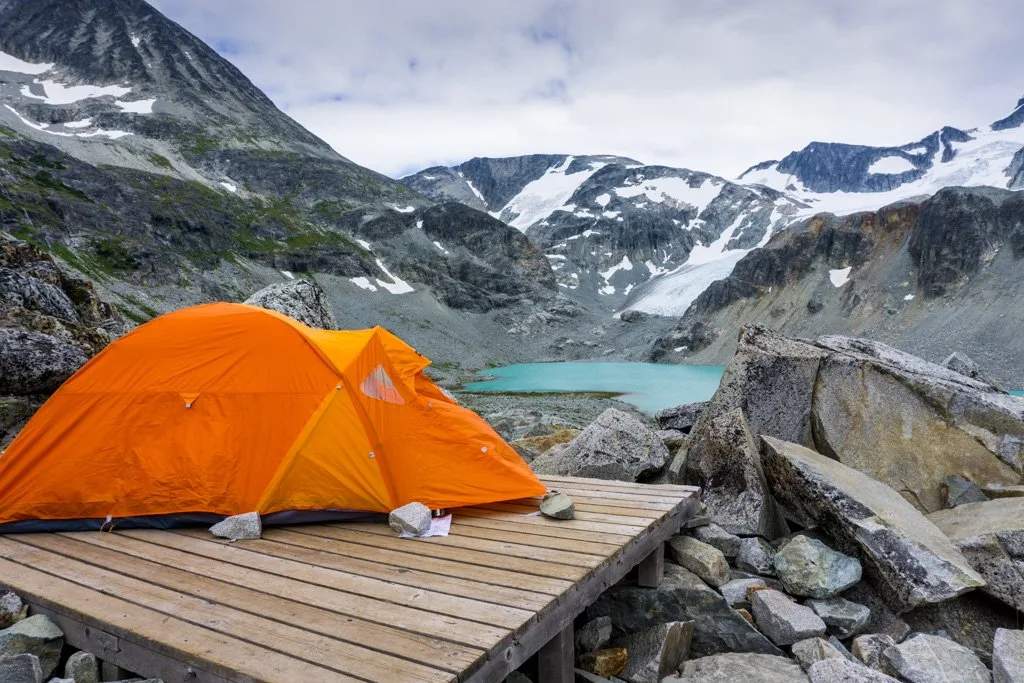
How Do Camping Cancellation Apps Work?
Before campsite cancellation notifiers came along, you didn’t have a lot of options if the campgrounds you wanted to stay at were fully booked up.
We all know that sometimes plans change and people have to cancel their reservation, leaving a campsite empty. You could refresh the booking website a few (dozen) times a day to see if anyone cancelled and a spot opened up. But that rarely worked and was super time-consuming, especially if you had to check more than one park or campground.
Campground cancellation apps do the checking for you. You sign up and input the campgrounds and dates you are looking for. The campsite availability checker uses an algorithm to automatically scan campground booking websites. Then it sends you a text or email when a campsite is available to book.
Once you get a notification, you have to act fast. Click the link in your text or email to go to the park website and reserve the site that just became available. Often, the campsite will get snapped up by someone else within seconds. But sometimes the site will be available for a few hours before it gets re-booked.
When I was trying to book a super popular campsite (Porteau Cove Provincial Park for those British Columbians in the know) it took dozens of notifications coming in before I was able to get a spot. Sometimes I missed the notification because I wasn’t paying attention to my phone or I was doing something more important (like working or sleeping). But sometimes I just didn’t click fast enough and someone else got there first.
Campground cancellation apps don’t book the campsite for you – you still have to make the reservation. That’s because using a campground reservation bot isn’t allowed. However, campground cancellation apps are legal since they just tell you when something is available, then you can book it yourself.
What About the “Notify Me” Feature Available from BC Parks and Parks Canada?
Since I originally wrote this review both BC Parks and Parks Canada have launched a free “notify me” feature that you can use when the campground you want is fully booked. The two systems use the same software so they work the same way.
In general, the “notify me” feature is helpful for casual frontcountry campers, but lots of people will still want to use a paid service for a few reasons.
Firstly, the “notify me” feature allows you to sign up for up to five notifications and you can only sign up for a very specific booking (the exact dates/duration and campground that you search for). If you are flexible with your dates or want to watch lots of campgrounds, that won’t be enough.
Secondly, “notify me” doesn’t work for backcountry campgrounds.
Thirdly, “notify me” isn’t very fast. In my experience (which is similar to others I’ve talked to) the email notification comes in about 30 minutes later than notifications from Campnab or Schnerp.
And finally, “notify me” is email only while Campnab and Schnerp are both text and email. Like most people, I check my texts all the time but ignore my emails for hours. That makes it more likely that I’ll see a Campnab or Schnerp text quickly so I can jump on it right away.
The Best Camping Cancellation Apps
There are lots of camping cancellation apps on the market right now. Some, like Arvie, are aimed only at RVers and focus on private RV parks. Campsite Assist, Campflare, and Campsite Notifier all scan American National Parks, State Parks, and forest service campgrounds. (However, each app has a slightly different list of parks they scan.
So far, only Campnab and Schnerp work in Canada. Since I’m Canadian, I’m going to focus on these two apps. Below you’ll find a head-to-head comparison of Campnab vs. Schnerp. I’ve been using both of these apps for nearly a year and have run lots of different searches through them to see what kind of results I get. Read on for the full review.
Campnab vs. Schnerp – What Campgrounds Do They Cover?
Right now Schnerp covers Parks Canada (national parks), Alberta Parks, BC Parks, and Ontario Parks. Between those four, they have the most popular places to camp in Canada covered. They also scan backcountry campgrounds and day-use activities like the bus to Lake O’Hara. As a plus for backcountry users, Schnerp also scans Alpine Club of Canada (ACC) huts.
Campnab covers waaaay more campgrounds. In Canada, they cover Alberta Parks, BC Parks, Ontario Parks, Nova Scotia Parks, and Parks Canada (national parks). They also scan American National Parks, many state parks, and other campgrounds available to book through recreation.gov. They also cover backcountry campgrounds, day-use buses, and wilderness permits in both countries. Starting in 2024, they also cover campgrounds run by Yellowstone lodges, which are notoriously hard to book.
Winner: Campnab
They just cover way more campgrounds.
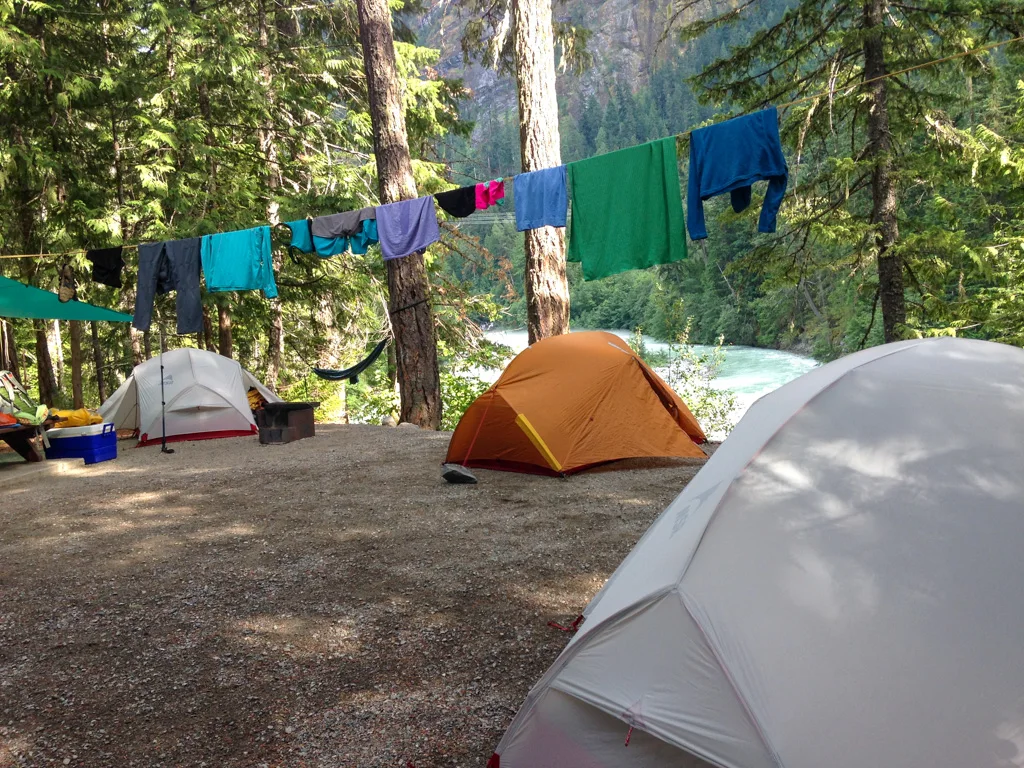
Campnab vs. Schnerp – Price
Update: Schnerp used to be the clear winner in this category. But both Schnerp and Campnab changed their pricing in early 2024 to add more plans. I’ve updated this section to reflect the new pricing (which is still accurate as of early 2026).
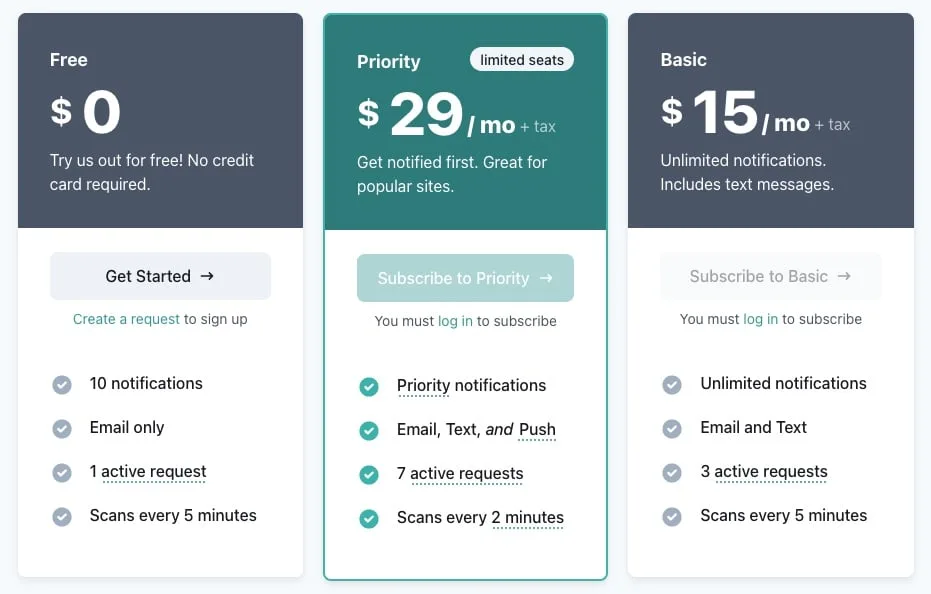
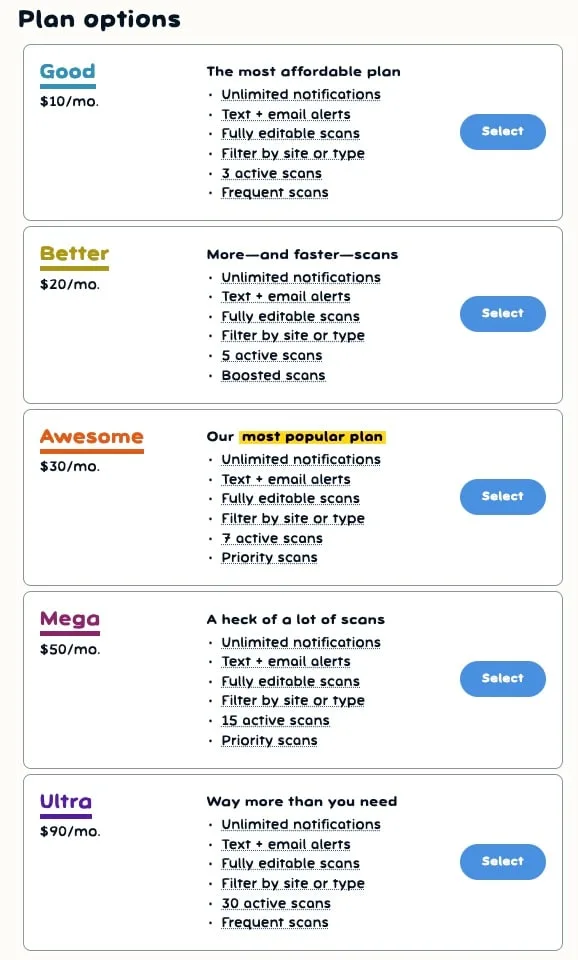
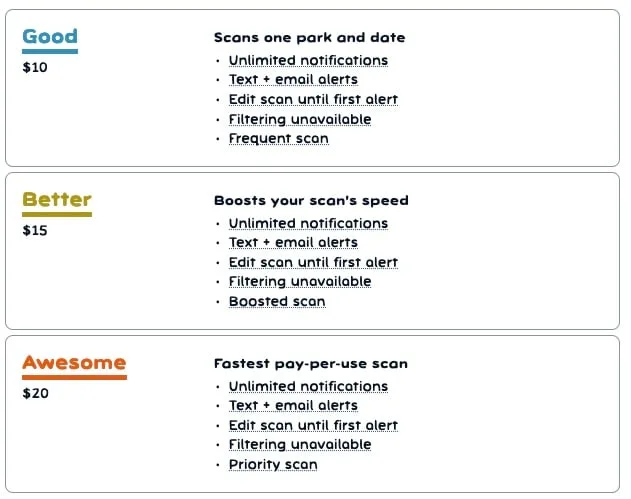
With Schnerp, you have to sign up for a plan. But with Campnab, you can pay for a plan or pay-per-use. The pay-per-use scans are good if you are really sure of your plans and only need to watch one campground. But otherwise, getting a plan is a better deal.
Both Campnab and Schnerp have several monthly plan options available. But Schnerp gives you a free trial – they will send you 10 notifications for free.
It’s tempting to compare the plans from both apps head-to-head based purely on the price per set of dates at one campground you are watching (which Campnab calls a scan and Schnerp calls a request). Schnerp’s Basic plan is $5/request and their Priority plan is $4.14/request. Campnab’s plans are $3.33/scan (Good); $4/scan (Better); $4.29/scan (Awesome); $3.33/scan (Mega); $3/scan (Ultra).
But that doesn’t really give you the full picture. If you’re desperate to book a hard to reserve campground, you will also want to know how often they scan – in general you pay more for more frequent scans.
Campnab no longer discloses how often they scan. Instead they say they scan “frequently”, “boosted”, or “priority”. Campnab explains that their scans are variable based on the popularity of the park – more popular parks get scanned more often than less popular parks, and on more premium plans, they scan even more frequently. When they used to disclose their scan times, they weren’t scanning as often as Schnerp, but its hard to compare performance now.
It’s also worth noting that Schnerp’s scan set-up is really flexible, which means you get a lot more date options out each scan compared to Campnab. (See the Setting Up a Scan section below to see what I mean.)
The only place that Campnab wins is their Mega (15 scans) and Awesome (30 scans) Plans that let you run tons of scans compared to Schnerp which tops out at 7 scans.
Winner: Schnerp
Schnerp wins in most categories here. Not only do they have a free trial, but their $29/month Pro Plan is equivalent to Campnab’s $30/month Awesome Plan except that it (probably) scans more often. And since Schnerp has a better scan setup (see below), Schnerp’s Pro Plan can likely compete with Campnab’s Mega and Ultra Plans for most people.
Campnab vs. Schnerp – Setting Up a Scan
The process to set up a new scan is pretty similar between Campnab and Schnerp. However, there are a few key differences that you will want to pay attention to because they can affect the price.
On both services, you start by plugging in a park or campground. From there, you can select what type of site you want (RV vs. tent, which loops of the campground, if you are ok with a walk-in site, etc.) Both Schnerp and Campnab let you specify whether you want electric hook-ups or wheelchair accessibility.
If you know the campground well, you can also select a specific site or set of sites. Schnerp lets you do this as part of a standard request. On Campnab, you need to have a monthly subscription plan to use this feature.
The other way that the two services differ is when it comes to date selection windows. On Schnerp you can set up a scan that covers weeks or months at a time, then refine which days of the week within that window you want to arrive and how many days you want to stay. That counts as one scan. So for example, if you know you want to go camping a weekend in August, you can set up a scan that covers the whole month but then specify that you only want to arrive on Saturdays and stay for one night.
Campnab requires you to set up much smaller scans. You pick an arrival day and can say you are flexible up to six days after that date. Effectively, this means that each scan is a maximum of a week long. And in the August camping example I gave for Schnerp, you would have to set up four scans with Campnab, one for each weekend.
Winner: Schnerp
Since Schnerp allows you to have a much longer window of dates you are watching, you can create way more scans within their monthly plans than you can with Campnab.
Campnab vs. Schnerp – Receiving Notifications
Both Campnab and Schnerp send notifications by text message and email (you choose which method). The notification comes with a link directly to the park site to start your reservation. Schnerp also offers push notifications with their Pro Plan.
In practice, receiving notifications from both services is pretty similar. They both tell you the campground name, date, and campsite number that is available.
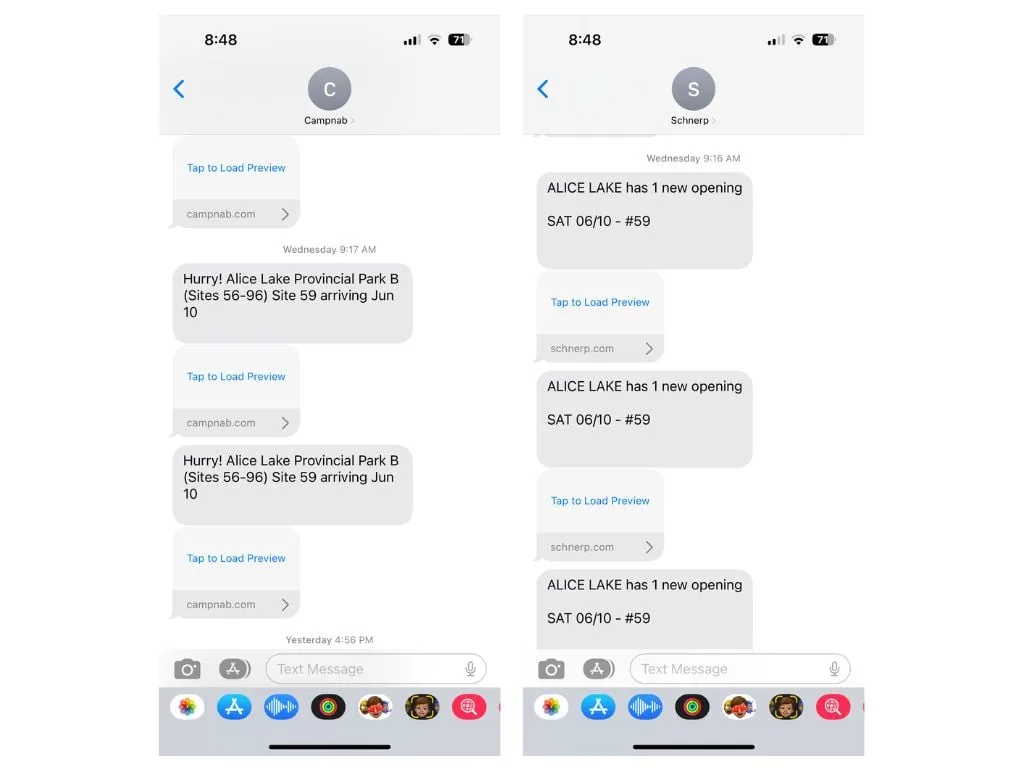
Since I was testing Schnerp and Campnab at the same time for the same dates and campgrounds, I was able to see which service was faster. I had dozens of notifications come in over a two-month stretch and most of the time, I got a notification from Schnerp a minute or so before I got one from Campnab.
On both sites, you can review your scans to see how many notifications you have been sent. Schnerp also has the added advantage of telling you how long a site was available before it got rebooked. It also tells you how many times it has scanned for you – my scans are all in the tens of thousands. There is no way I could have checked the booking sites that many times.
Winner: Schnerp
It’s often a bit faster than Campnab. I also like that you can dig into the history of your notifications and scans a bit more.
Campnab vs. Schnerp – Customer Support and Information
It can take a bit of trial and error to figure out how to configure scans with both Campnab and Schnerp. Or you might be wondering how these campsite availability checkers work or which pricing plan to choose.
Campnab has a huge FAQ page, full of answers to common questions including in-depth answers about how to set up scans and optimize the service. They also have a chat service you can contact if you need help or have questions. Their blog also has a few articles with great tips about how to use Campnab.
Schnerp has a bare-bones FAQ page that answers the basic questions but doesn’t go into any depth. They also have a chat service.
Winner: Campnab
Their FAQ page and blog have all the info you could ever need about using their camping cancellation app. I also love their optimization tips.
Campnab vs. Schnerp – Backstory
Both Campnab and Schnerp are Canadian companies with similar origin stories.
Campnab is run by two Vancouver-based software developers, Eric Karjaluoto and Eric Shelkie. They started Campnab in 2017 after having a hard time booking camping for families at BC Provincial Parks.
Canmore-based Dan Thareja started Schnerp in 2022. As a software developer, he wrote code to automatically scan Parks Canada reservations for himself. But when his friends wanted to use it, he thought it might also be a good business idea.
Dan chose the name “Schnerp” after a slang word that a friend used for hunting down powder stashes at a ski resort. To Dan’s friends, the term Schnerp could also be applied to any other scarce resource you worked hard to get.
Winner: Tie between Campnab and Schnerp
Both Campnab and Schnerp have similar backstories and both apps are made in Canada.
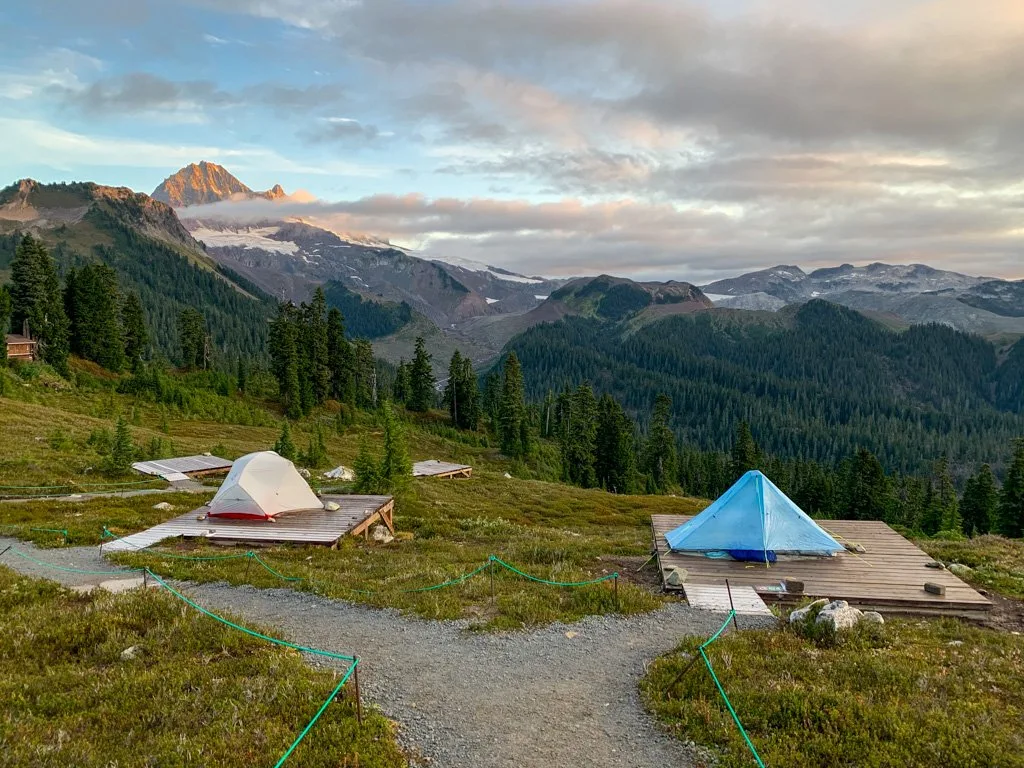
Campnab vs Schnerp – The Final Rating
After using both Campnab and Schnerp for a nearly a year and running tons of scans, I would say that I’m happy with both camping reservation notification services and recommend both of them.
However, I think the overall winner is Schnerp because their subscription provides more frequent scans for your money. But if you want to scan campgrounds in the United States, Campnab is still a great option.
Tips for Using Camping Cancellation Apps
The biggest complaint I hear from people using these apps is that by the time they see the notification and click through to book, someone else has already scooped up the cancellation.
My biggest piece of advice is to use text alerts, not email. Keep your phone close to you so you can see those alerts right away. I typically have my phone on silent, but but I have special settings for Campnab and Schnerp so that they always ding audibly on my phone. I also use a different sound than for regular text messages so that I know it’s something I need to jump on right away.
Final Thoughts
So that’s everything you need to know about camping cancellation apps. If you’re looking to find a campsite this summer, I definitely recommend both Schnerp (and to a very slightly lesser extent Campnab). They are so helpful! Do you have other camping cancellation apps to recommend? Tell me in the comments.
READ NEXT:
- Camping Near Vancouver, BC: 40+ Best Campgrounds
- How to Make Backcountry Camping Reservations in BC
- How to Go Backpacking in BC Without Reservations
- 2023 BC Backpacking Reservation Dates You Need to Know
- Grasslands National Park Travel Guide - February 4, 2026
- The Best (and Worst) Backpacking Meals Reviewed - December 16, 2025
- My Favourite Hiking Gear of 2025 - December 9, 2025

